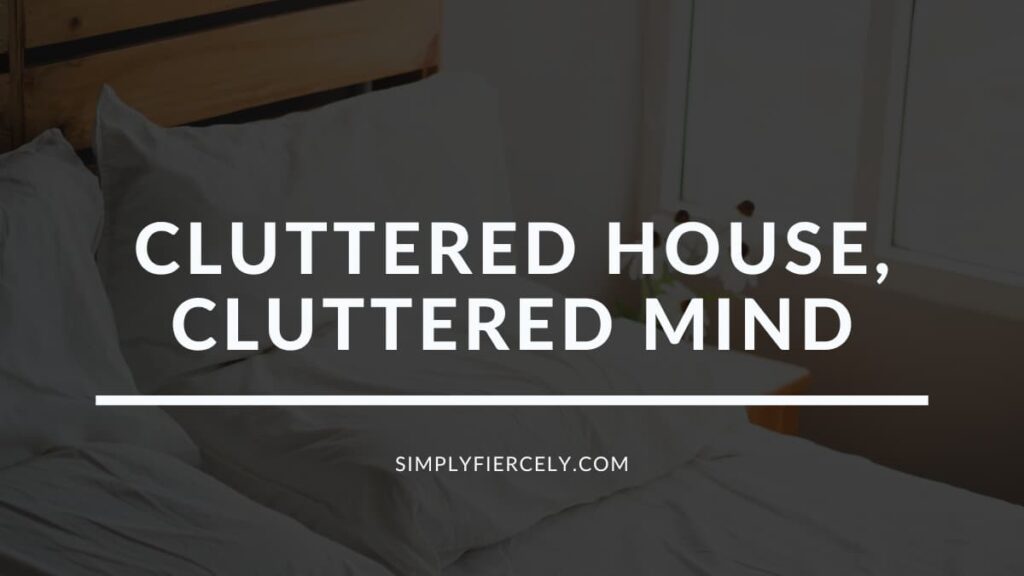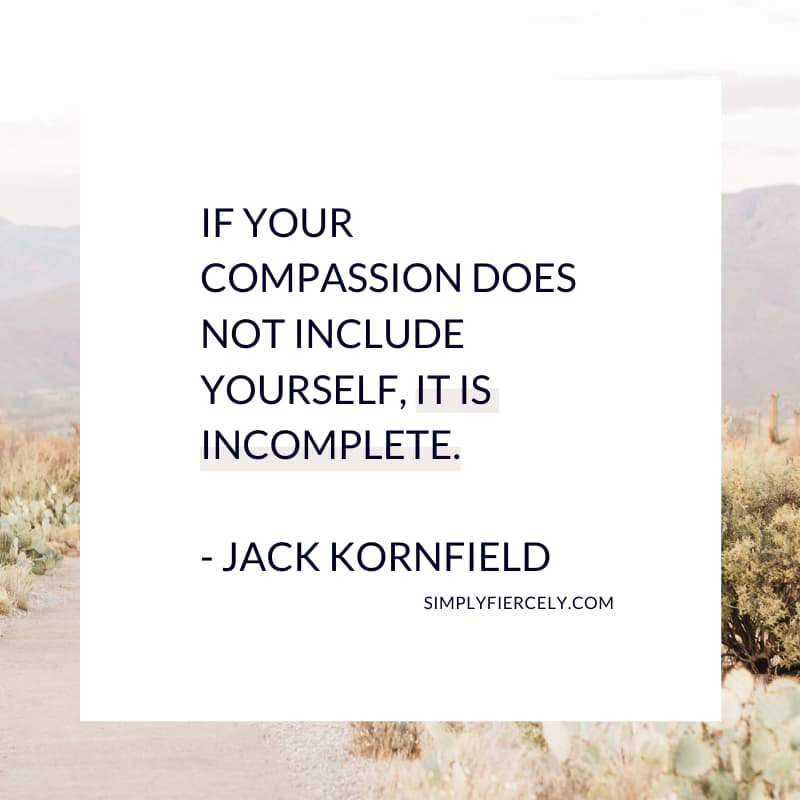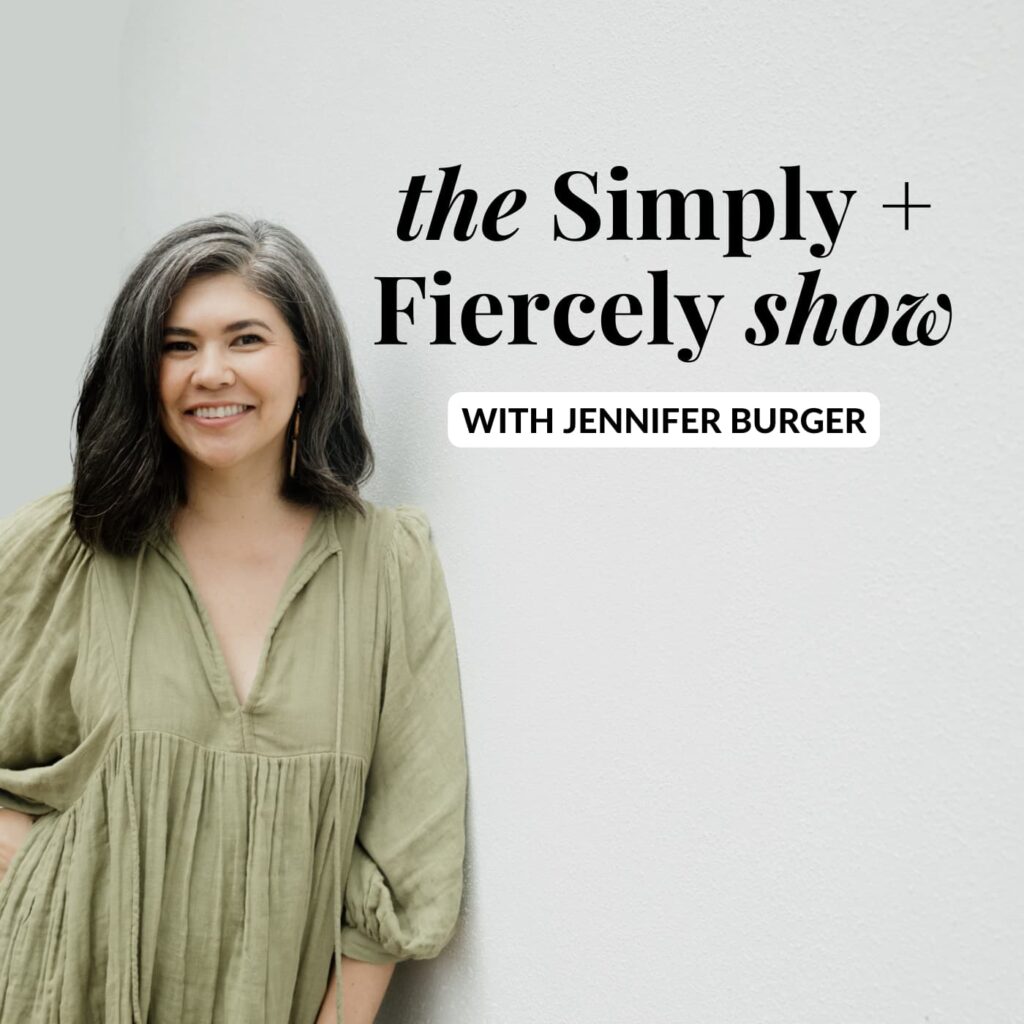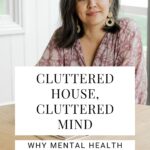Inside: a cluttered house can cause a cluttered mind—but does the opposite apply? A discussion about the roots of clutter, the role of mental health, and a somewhat different approach to decluttering.
In the past few years, I’ve seen quite a few articles discussing the relationship between clutter and mental health.
Most agree that a “cluttered house leads to a cluttered mind”, and this has been my experience as well. When your home is overflowing, it can be hard to focus, and studies have shown it increases the stress hormone in your body.
This is a powerful argument in favour of decluttering—if you need one, and you probably don’t. More and more people want to declutter their homes and lives, but it’s the how that gets them stuck.
Decluttering is simple in theory, but in reality, it’s an emotional drain. Usually, things get worse before they get better, and the whole process can add yet another layer of stress and anxiety to our busy lives.
If you can relate, keep reading because I want to offer a different approach. This perspective will not only help you to declutter but also relieve some of the mental load.

This post contains affiliate links, which means I recommend products and make a small commission on purchases at no additional cost to you. Click here for the full disclosure statement.
How does a cluttered house affect your mental health?
Let’s start with the facts. According to an article shared by the Australian College of General Practitioners, here are some of the ways physical clutter affects our mental health:
- Clutter can increase stress levels by creating visual chaos and disrupting a person’s sense of control over their environment.
- A cluttered environment can increase cortisol levels, leading to depression or anxiety disorders.
- Clutter can impact sleep quality, making it difficult to relax and fall asleep.
- Living in a cluttered space can affect decision-making abilities and lead to procrastination and difficulty focusing.
It all sounds pretty doom and gloom, doesn’t it?
A cluttered home causes all these problems in our lives, which is why the media and bloggers spend a lot of time discussing how to declutter your home–and obviously, if you’re familiar with my work, you’ll know that I include myself in this group.
But lately, I’ve been wondering if, as a whole, we’re putting the cart before the horse.
Yes, decluttering is important … but shouldn’t we also be discussing why we have so much stuff in the first place?
Cluttered house, cluttered mind: the chicken or the egg?
While cause and effect have been clearly established – clutter in your home leads to mental clutter – I think it’s vital to ask ourselves if the reverse is true.
Does clutter in your mind create clutter in your home?
In my experience, absolutely. I’d argue that many people have a clutter problem in the first place because they’re struggling with mental health issues without proper support.
Here are just a few examples that I’ve witnessed:
- Struggles with self-worth and self-acceptance: when we don’t feel good enough, we use “stuff” to compensate.
- Feeling unsafe in your home or body: when we experience insecurity, we may turn to our physical possessions as a security blanket.
- Unable to cope with stress or even past trauma: owning and buying a lot of stuff can be a way of buffering negative emotions.
To be clear, I don’t think I’m the first or only person to make this connection. But I know the causes of clutter aren’t discussed nearly enough. It matters for two critical reasons, as I’ll explain shortly.
What does a cluttered home say about a person?
What are your first thoughts when you imagine someone with a lot of clutter?
Whether it’s conscious or not, I’m willing to bet there are elements of judgement and negativity: Are they lazy? Bad with money? How on earth did they let it get so bad?
We project this outwards, towards other people with clutter, and these beliefs are also reflected back to ourselves. As a result, the chaos in our homes and lives is often accompanied by feelings of shame and judgement.
I experienced this firsthand. As a former shopaholic, I had an obscene amount of stuff. While I projected a false bravado on a daily basis, deep down, I felt stupid and ashamed, as if my clutter was proof that I was a bad person.
Obviously, this wasn’t a good feeling, but these thoughts impacted more than just my mental state. When you feel shame about your clutter, acting on it feels impossible. After all, who wants to declutter when it feels like proof of moral inferiority?
But what happens when we change the narrative? Instead of blaming ourselves for clutter, can we approach the problem with curiosity and self-compassion?
It reminds me of something I read in Brené Brown’s book Daring Greatly (affiliate link) about narcissism:
“When I look at narcissism through the vulnerability lens, I see the shame-based fear of being ordinary. I see the fear of never feeling extraordinary enough to be noticed, to be lovable, to belong, or to cultivate a sense of purpose.”
While I’m not denying the role of personal agency, I think a similar shift in perspective needs to occur regarding clutter. Can we also view it through a vulnerability lens? If so, this is what I think you might see:
- You’re not “bad” if you have a messy house, piles of stuff, and unfinished projects.
- Your overabundance of possessions does not reflect your value as a person.
- You’re not a failure if decluttering is a struggle and takes you longer than everyone else.
Instead, let’s switch the narrative. What if your clutter is less about who you are and more about your access to resources and support?
It’s not hard to imagine how much easier it is to change habits and behaviour when it comes from this place of deep understanding. When we feel shame about clutter, it’s tough to address it head-on. But compassion opens the door to difficult conversations.

A starting point for your decluttering journey
Acknowledging overall mental health’s role in accumulating clutter is the first step because it helps overcome the emotional turmoil associated with decluttering. You stop beating yourself up, creating mental space to do the work.
But it’s more than that.
When we know that mental health is a cause of clutter, it changes how we declutter.
Instead of diving in head first, dumping everything out and sorting it into piles, we can start with the roots.
- Can you find other ways to cope with your chronic stress?
- Have you tried journaling for self-esteem and self-acceptance?
- Are you able to work with a therapist or mental health professional?
(Side note: You don’t need to have a mental health condition for your mental health to influence your relationship with clutter.)
Of course, you still have to do the physical work of decluttering, but this approach is much more well-rounded. Your thought process is different–instead of powering through your entire home in a weekend, forcing yourself to let go, you make time for understanding.
And yes, it takes a bit longer at first, but in the long term, you’ll clear lots of clutter in less time. It’s more sustainable, and there are fewer negative feelings because it becomes less about getting rid of stuff and more about your quality of life (in fact, I found it quite healing).
From there, it’s a beautiful cycle. The work you do on your mental health empowers you to declutter, and a healthy home environment improves your mental health, which in turn helps you maintain a clutter-free home.
The Simply + Fiercely Show is a podcast for women who want to clear their clutter and create space for freedom and joy. If your life keeps getting bigger—but not better—then it’s time to declutter from the inside out. LISTEN NOW
Learn more about the clutter-mind connection
If you’re struggling to connect the dots between your physical space and your mental space, here are a few articles you might find helpful:
- Why Your Life is Busy + Cluttered (Plus What to Do About It) – a new perspective on why decluttering is so challenging.
- Doing Less + A Lesson in Self-Worth – if you struggle with a never-ending to-do list, this post is for you.
- 17 Heart-Centred Ways to Simplify Your Life – the best way to simplify is from the inside out, and here are a few ideas to get started.
A mindful process of decluttering
Finally, if you’d like to learn more about my approach to decluttering, I invite you to download my free Mindful Decluttering guide.
Alternatively, you might enjoy one of the following articles:


